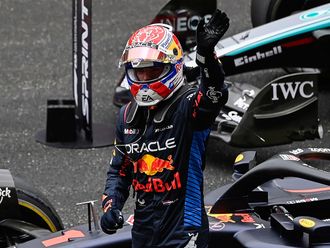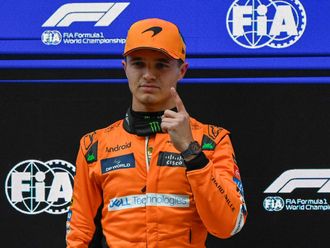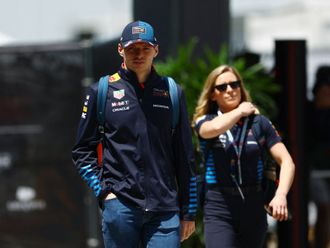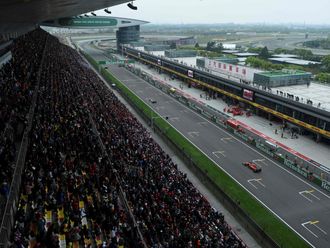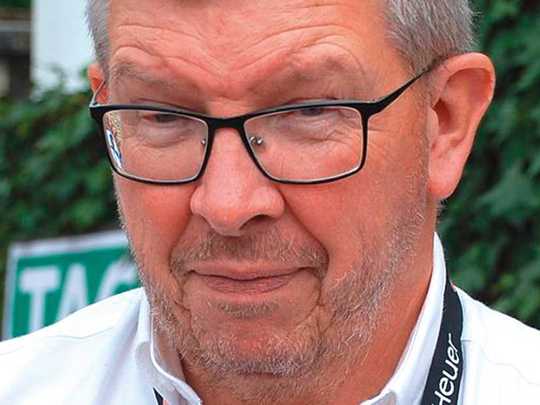
Dubai: With the inevitable change in engines looming before F1 by the start of the 2021 season, one of the brightest minds and top officials from motorsport has set his mind on solving the ever-increasing menace of ‘grid penalties’.
Grid penalties have grown drastically in both amount and frequency, forcing teams to work out a solution or at least have a plan in mind to address the issue. Of late, it is grid penalties that have got teams flustered and seeking answers. And one man who perhaps may come up with a plausible solution, or at least offer a nonchalant direction, is Ross Brawn.
The newly-appointed Managing Director of Motor Sports for the Formula One Group has termed grid penalties as a ‘farce’, more due to the way in which they have been slapped on drivers, almost making it a laughing stock among the fraternity. Given his vast experience and pedigree in the sport, Brawn is fully aware that racing can be improved, more with a shake-up in the engine rules. But it is the grid penalties that have made the 62-year-old Englishman sit up and take notice while trying to stir up a change.
With just the final race in Abu Dhabi remaining, Brawn’s frustration has grown while observing that the four engine manufacturers currently have a total of 730 grid penalties issued for power unit elements changes this season, excluding the gearbox penalties. Such a course can only mean the sure and certain demise of the sport in the long run as fans get disenchanted and lose interest while teams try to find alternatives.
Of course, there appear obvious solutions, like docking constructors’ championship points for grid penalties rather than punishing drivers. But, these inevitably will bring out unintended consequences such as teams choosing to willing take the penalty if this can guarantee itself the drivers’ championship.
On the one hand, eradicating grid penalties completely is an impossible task. And on the other, keeping things at the current level is also not acceptable. “The best way going forward is to sort the problem at source and get rid of the complicated elements that are proving so troublesome. That means simpler and cheaper turbos and energy recovery systems, so that, in effect, there stops being a need to limit how many can be used. No restrictions means no grid penalties. What we should try to achieve with the new engine is componentry that is economic to change whenever you want,” Brawn told media after last week’s Brazilian Grand Prix.
“If we go towards a different design of turbocharger, an homologated turbo, and it costs between $2,000 and $3,000, why would you bother to even worry about limiting the number you use? But when your turbocharger is as expensive and complicated as it is now, then that’s why we have the limitations,” he added.
The keen strategist that he is, Brawn is fully aware about who makes any sport tick. “Sportscar racing has its fan following but even in the environment where the fans were not the biggest thing, it faltered and it failed. In this environment, where the fans should be the biggest thing, we can’t afford to have that sort of failure where we get so extreme we lose contact with the fans, because only a very few people can afford the technology and excel in the technology,” he cautioned.
“We are four seasons into this technology and we are still getting so many grid penalties, because we can’t get on top of the technology. The quest for improved technology must never come at the expense of the show or fans,” Brawn added.
A word of caution though — bare little can be done before 2021 — as that’s when the new power units will come into play after Formula 1 and governing body the FIA earlier this season agreed on proposals for the next generation of F1 power units (PU), with improved noise, reduced cost, and a more level playing field among teams.


